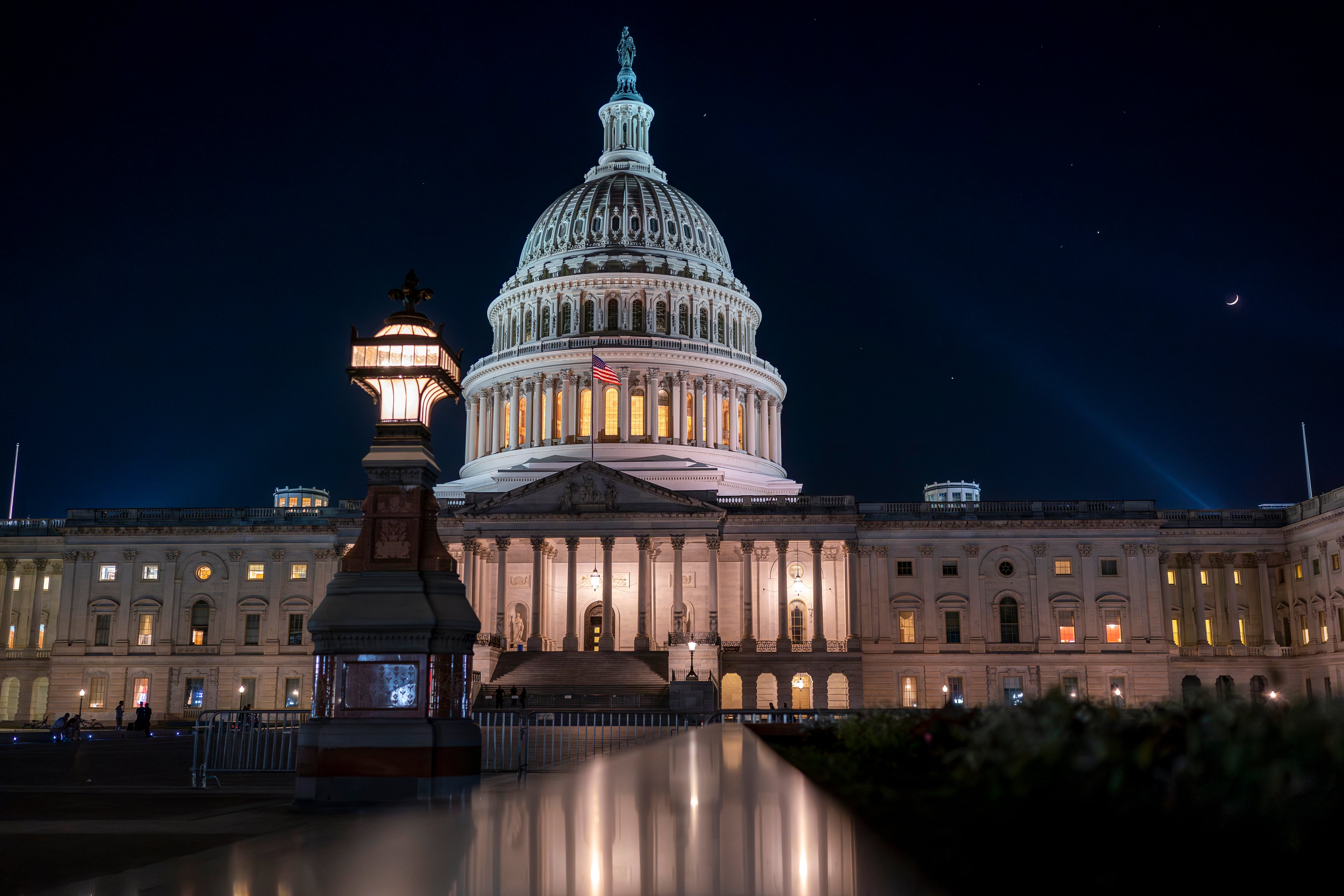Editor’s note: The number of nominees being held by Sen. Eric Schmitt was incorrectly reported in earlier versions of this story. It has been updated to reflect that he is blocking six nominees.
Even after the Senate’s confirmation of hundreds of Defense Department leadership posts on Tuesday, 23 senior military nominees remain stalled in Congress because of holds related to senators’ concerns about Pentagon policies surrounding abortion and diversity training.
When and whether those individuals will advance remains unclear. After celebrating the promotion of 422 senior military officers on Tuesday, Senate Majority Leader Chuck Schumer, D-N.Y., warned that “military nominees should never, never become pawns to push a partisan agenda” and vowed to continue to push back against similar Republican efforts.
Since late February, Sen. Tommy Tuberville, R-Ala., had blocked quick consideration of nearly every senior military nomination over his objection to the Defense Department’s abortion access policies, which allow for leave time and travel stipends for troops forced cross state lines to obtain abortion services due to local restrictions.
RELATED

On Tuesday, Tuberville mostly ended that protest but retained his blockade on 11 four-star nominees still pending before the Senate, saying he would continue to use the procedural move to highlight the “illegal” abortion policies.
That list of senior officers includes:
- Air Force Lt. Gen. Kevin B. Schneider, to be commander of Pacific Air Forces
- Air Force Gen. Kenneth S. Wilsbach, to be head of Air Combat Command
- Air Force Lt. Gen. Gregory M. Guillot, to be head of U.S. Northern Command
- Air Force Lt. Gen. Timothy D. Haugh, to be head of U.S. Cyber Command
- Air Force Lt. Gen. James C. Slife, to be Vice Chief of Staff of the Air Force
- Army Lt. Gen. James J. Mingus, to be Vice Chief of Staff of the Army
- Navy Vice Adm. James W. Kilby, to be Vice Chief of Naval Operations
- Navy Vice Adm. Stephen T. Koehler, to be head of U.S. Pacific Fleet
- Navy Vice Adm. William J. Houston, to be director of the Naval Nuclear Propulsion Program
- Space Force Lt. Gen. Michael A. Guetlein, to be Vice Chief of Space Operations
- Space Force Lt. Gen. Stephen N. Whiting, to be head of U.S. Space Command
Separate from those blocks, Sen. Eric Schmitt, R-Mo., on Wednesday announced he is blocking quick consideration of six other senior military officers “relating to concerns that he has regarding those nominees’ stances or actions relating to divisive diversity, equity, and inclusion programs in the military,” according to a statement released by his office.
Schmitt did not detail the specific accusations against the officers he singled out, a list that includes Schneider (already being held up by Tuberville) and Navy Rear Adm. Shoshana S. Chatfield, President Joe Biden’s pick to be the military representative to NATO. The other nominees being blocked by Schmitt are:
- Air Force Brig. Gen. Paul D. Moga
- Air Force Brig. Gen. Scott A. Cain
- Air Force Col. Benjamin R. Jonsson
- Army Col. Andrew O. Saslav
Seven others are being held up for procedural reasons, and could be advanced in coming days. They include Army Maj. Gen. Michele H. Bredenkamp, nominated to be a senior advisor to the director of National Intelligence; Army Maj. Gen. Stephen G. Smith, tapped to be the next chief of staff for U.S. Army Forces Command; Air Force Col. David J. Berkland; Army Brig. Gen. Lawrence G. Ferguson; Army Col. John W. Sannes; Navy Rear Adm. Jeffrey Czerewko; and Navy Capt. Brian J. Anderson.
Both Tuberville and Schmitt’s holds do not prevent a floor vote on the individual nominees, a process that can take up hours of floor time for each name.
Senate Armed Services Committee leaders had said going through those procedural moves for hundreds of nominees would have taken months of work, preventing any other chamber business from being completed.
However, getting through the list of 23 still-pending nominees should take only a few days or weeks of floor time, depending on debate agreements to be negotiated between Democratic and Republican senators.
Schumer did not announce any imminent plans for those floor votes. The Senate is scheduled to be in session until Dec. 15, but has a host of budget items and other legislative priorities scheduled for the final working days of 2023.
If the nominations aren’t settled before the end of December, lawmakers will be able to consider them in 2024.
In a statement Tuesday, Defense Secretary Lloyd Austin praised the advancement of the 422 defense nominations, but added “we also look forward to the Senate’s confirmation of the remainder of our highly qualified and apolitical military leaders, so that America can have the fully fielded team it deserves during this critical moment for our national security.”
Leo covers Congress, Veterans Affairs and the White House for Military Times. He has covered Washington, D.C. since 2004, focusing on military personnel and veterans policies. His work has earned numerous honors, including a 2009 Polk award, a 2010 National Headliner Award, the IAVA Leadership in Journalism award and the VFW News Media award.




